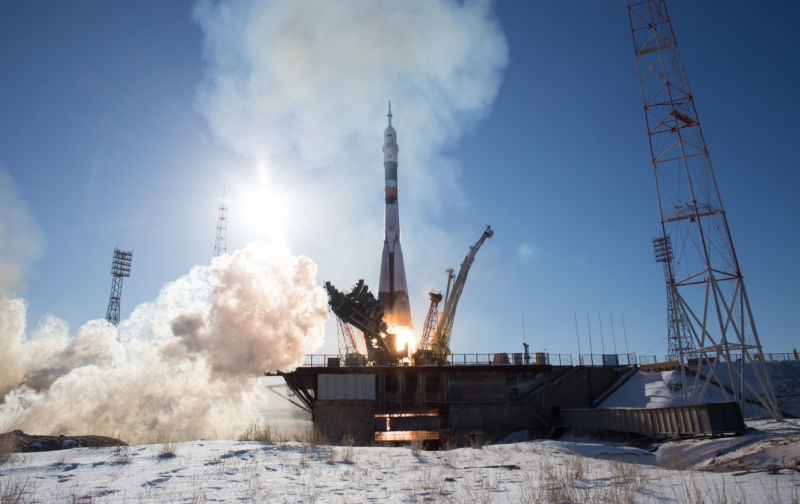
Because it lacks the funding to modernize its most historic launch pad, Russia now instead plans to turn “Gagarin’s Start” into a museum.
The pad is known as Gagarin’s Start because it hosted the world’s first human spaceflight in 1961, when the Vostok 1 mission carrying Yuri Gagarin blasted into orbit. Between 1961 and 2019, this workhorse pad accommodated a remarkable 520 launches, more than any other site in the world.
Most recently, during the last two decades, the Soyuz-FG rocket launched cargo and crew missions from Gagarin’s Start, which is located on the Kazakhstan steppe near the small city of Baikonur. The final launch from the site took place in September 2019, with the Soyuz MS-15 mission carrying Russian cosmonaut Oleg Skripochka, NASA astronaut Jessica Meir, and United Arab Emirates astronaut Hazza Al Mansouri to the International Space Station.
After this launch, the pad was supposed to have been modernized to accommodate the slightly larger Soyuz 2 rocket. However, as things so often have happened in Russia’s space program, this modernization work has been put on hold due to a lack of funding. In the meantime, the Soyuz 2 has launched from other pads, including crewed missions from the nearby ‘Site 31’ at Baikonur.
UAE to the rescue?
For a time after the launch of Al Mansouri it appeared as though the UAE might step forward as an investor in the Baikonur facility. There already is a fairly complex operating agreement in Kazakhstan, as the sprawling Baikonur facility was created during the heyday of the Soviet Union. Currently, Russia has a lease on the facility until 2050 with the nation of Kazakhstan.
In November 2021 the UAE announced it had reached a “trilateral agreement” with Russia and Kazakhstan to modernize Gagarin’s Start to promote peaceful space exploration.
“Joint plans to work together to attract investment and modernize the historic Baikonur Cosmodrome demonstrate the potential for global cooperation that advances mutual interests in spaceflight, scientific progress, technological innovation, and sustainable economic growth,” Sarah bint Yousif Al Amiri, chairwoman of the UAE Space Agency, said at the time.
However this agreement was never acted upon, probably because Russia launched a full-scale invasion of Ukraine only a few months later. After the onset of the war, a number of partners with Russia in space, including in Europe and Asia, backed away from their cooperation on launches and other projects.
So now it’s a museum
Russia and Kazakhstan have been searching for other potential investors in the project during the last two years but apparently have found no takers. So last month, according to the Russian state news service TASS, a commission of Russian and Kazakh officials decided to instead convert Gagarin’s Start into a museum complex to preserve its historic heritage.
Roscosmos said Kazakh officials will lead the project to create the museum, as the site is the state property of Kazakhstan. It is hoped by Kazakh officials that the addition of the museum will increase the viability of Baikonur as a tourism site. Already, when visiting Baikonur for a launch, there are several historic sites to see, including the cottage where Gagarin stayed the night before his launch and a model of the Buran spacecraft.
In addition to a lack of funding for a launch site refurbishment, there are probably other reasons why Roscosmos no longer feels compelled to revamp Gagarin’s Start for space launches. The Soyuz 2 rocket already can launch from spaceports in the northern and eastern parts of Russia, at Plesetsk and Vostochny, respectively. And Russia is more interested in investing in those facilities since they are not leased from Kazakhstan.
Additionally, there is far less commercial demand for the Soyuz 2 rocket after the Ukraine War. In the weeks after the invasion, the then-head of Roscosmos, Dmitry Rogozin, held OneWeb satellites that were to launch on a Soyuz rocket hostage after Western nations condemned Russia’s actions. Rogozin made several preposterous demands, including that the United Kingdom must withdraw its investment in OneWeb.
This understandably has dampened Western interest in Russian launch services.
https://arstechnica.com/?p=1976209

